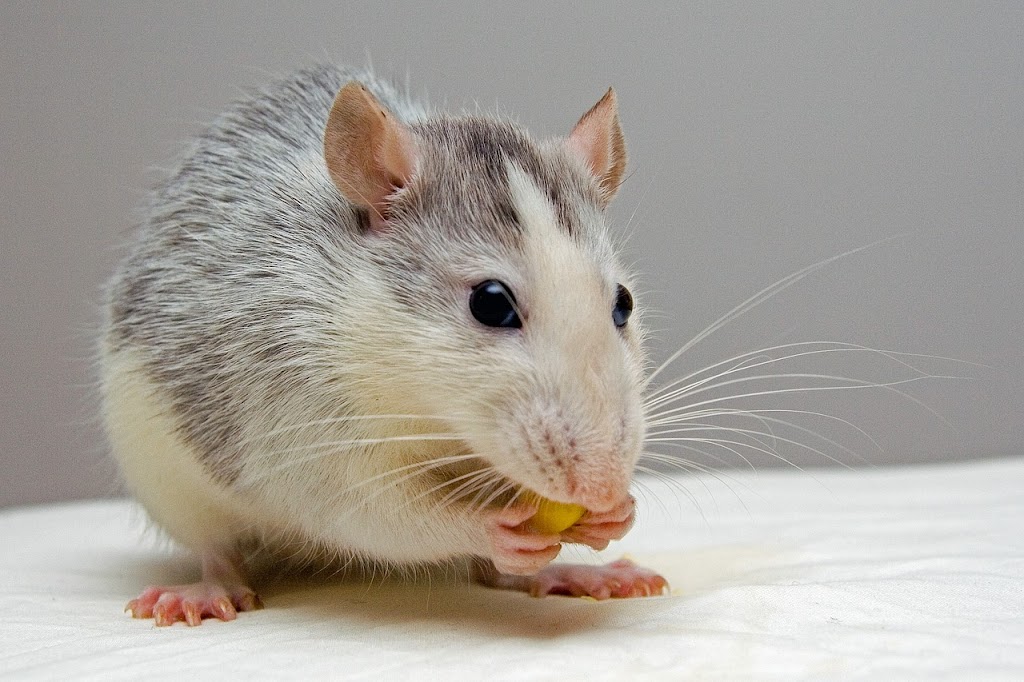Feeding your pet rat – the right rat food is essential for its health and happiness. As omnivores, rats require a balanced diet that includes both plant-based and animal-based foods. In this guide, we’ll cover what rats should eat, what they shouldn’t eat, and which rat foods to offer in moderation to ensure a healthy, thriving pet.
What to Feed Your Pet Rat: A Balanced Diet
Rats are omnivorous creatures, meaning they can eat both animal and plant-based foods. To provide a balanced diet for your pet rat, you should include a variety of nutritious foods. Here’s a breakdown of the best foods for your rat:
1. Commercial Rat Food
High-quality commercial rat food is the base of your rat’s diet. These specially formulated pellets contain a balanced mix of protein, fiber, vitamins, and minerals. Choose a reputable brand that offers a well-rounded formula. Pelleted foods prevent picky eating and ensure your rat gets all the nutrients it needs.
2. Fresh Vegetables
Fresh vegetables are essential for a rat’s health, offering vital nutrients and fiber. Some great options for your pet rat include:
- Broccoli: Packed with vitamin C and calcium.
- Carrots: Full of vitamin A and antioxidants.
- Spinach: Rich in iron and fiber.
- Cucumber: Low-calorie and hydrating. Make sure to wash all vegetables thoroughly to remove pesticides.
3. Fruits
Fruits provide natural sugars and essential vitamins. However, due to their sugar content, they should be offered in moderation. Safe fruits for rats include:
- Apples (without seeds)
- Bananas (in small portions)
- Grapes
- Strawberries
- Blueberries These fruits are rich in vitamins like vitamin C and antioxidants, supporting your rat’s immune system.
4. Protein-Rich Foods
Protein is essential for your rat’s muscle development and overall health. Good sources of protein include:
- Cooked Chicken: A lean source of protein.
- Eggs: Hard-boiled or scrambled eggs are excellent protein options.
- Tofu: A plant-based protein suitable for rats.
- Cooked Beans: Provide a good protein boost when cooked thoroughly. Ensure that proteins are offered in moderation to maintain a balanced diet.
5. Whole Grains and Seeds
Whole grains such as oats, quinoa, and rice are excellent sources of carbohydrates. These foods provide energy and are easy for rats to digest. You can also offer small amounts of seeds like sunflower and pumpkin seeds as an occasional treat.
Foods That Should Be Avoided for Rats
While rats are not picky eaters, there are several foods that should never be given to your pet rat due to health risks. Avoid the following:
1. Chocolate
Chocolate contains theobromine, a substance toxic to rats. Even small amounts can cause serious health problems, including seizures and death. Never feed your rat chocolate.
2. Caffeinated Drinks
Caffeine can cause heart problems, nervousness, and restlessness in rats. Do not give your rat coffee, tea, or any caffeinated beverages.
3. Alcohol
Alcohol is extremely toxic to rats. Even tiny amounts can cause liver damage, impaired coordination, and potentially fatal consequences. Keep alcohol far away from your rat.
4. Onions and Garlic
These foods contain compounds that can damage red blood cells and cause digestive issues in rats. Avoid onions and garlic in your rat’s diet.
5. Raw Beans
Raw beans contain toxins that are harmful to rats. Always cook beans thoroughly before offering them to your pet.
6. Salty and Sugary Snacks
Processed snacks like chips, cookies, and candies contain high levels of sugar and salt, both of which can lead to obesity, heart disease, and other health problems in rats. Stick to natural, fresh foods for your rat.
7. Citrus Fruits
Citrus fruits like oranges, lemons, and limes are acidic and can cause digestive upset in rats. Limit the amount of citrus your rat consumes to avoid tummy troubles.
Foods to Feed Your Rat in Moderation
While some foods are safe for rats, they should only be offered in small amounts to avoid health issues. These include:
1. Nuts
Nuts like almonds and walnuts are high in fat and can contribute to obesity if fed in large quantities. Give them as an occasional treat to add variety to your rat’s diet.
2. Cheese
Cheese is not harmful to rats, but it can be high in fat and may cause digestive problems in some rats. Offer cheese sparingly.
3. Dairy Products
Some rats can tolerate dairy, but it’s best to offer it in small quantities. Stick to low-fat options like plain yogurt or small amounts of milk.
4. Sweet Fruits
Although fruits like bananas and grapes are healthy, they are also high in sugar. Offer them only as occasional treats to prevent excessive sugar intake.
Tips for a Healthy Rat Diet
- Fresh Water: Always provide fresh, clean water for your pet rat. Rats need constant access to water to stay hydrated and healthy.
- Variety is Key: Feed your rat a variety of foods to ensure they get a wide range of nutrients. Rotate vegetables, fruits, and proteins regularly.
- Portion Control: Be mindful of portion sizes. Overfeeding treats or high-fat foods can lead to obesity and other health issues.
Conclusion: Keep Your Pet Rat Healthy with the Right Diet
A balanced diet is essential for your pet rat’s well-being. By feeding your rat a variety of nutritious foods, including high-quality commercial rat food, fresh vegetables, fruits, and protein sources, you can ensure they live a long, healthy life. Avoid harmful foods like chocolate, alcohol, and caffeine, and remember to provide treats in moderation. With the right diet and care, your pet rat will stay active, happy, and healthy for years to come!



